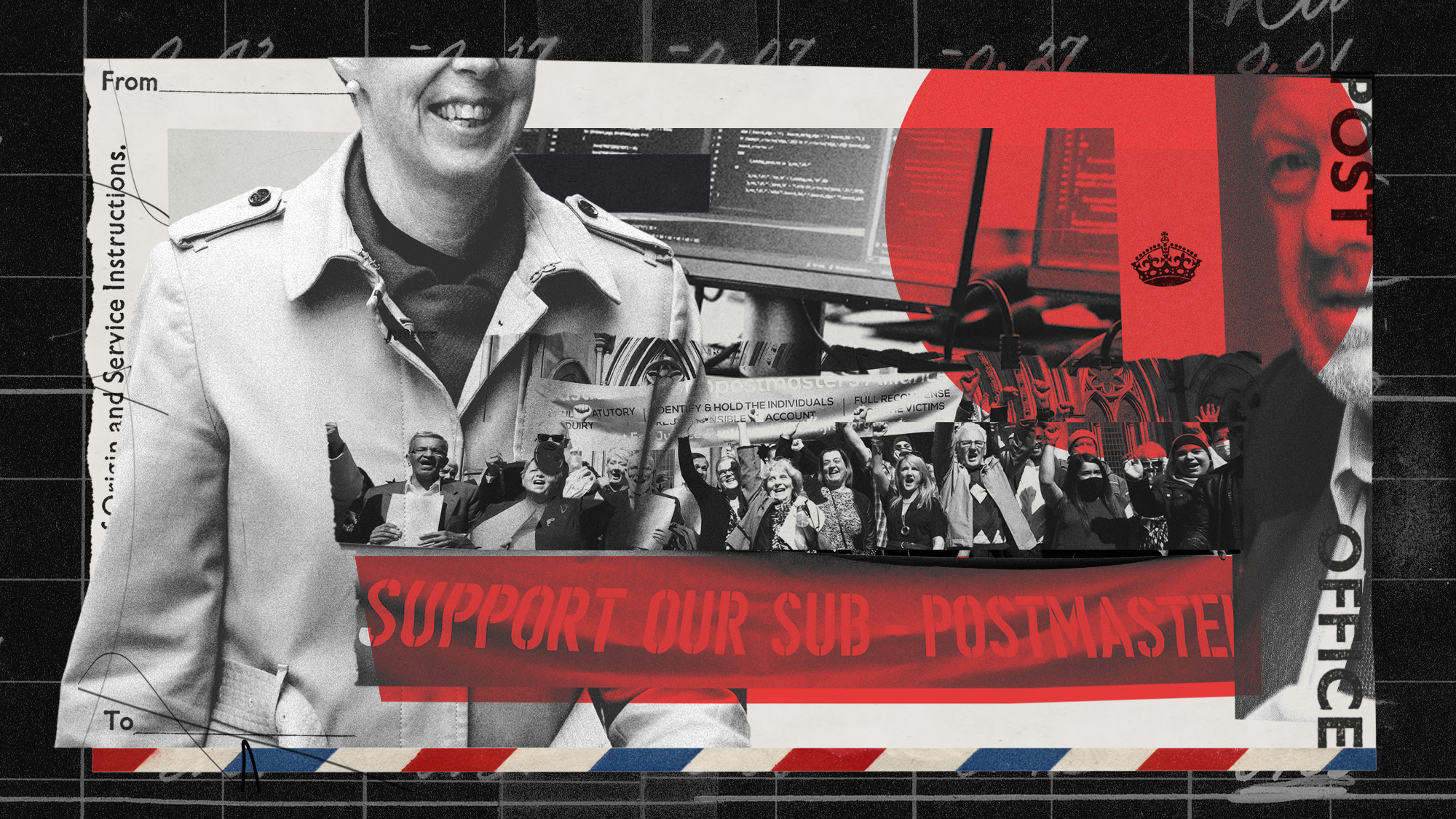What next for the Post Office scandal?
Former Post Office boss and postal minister and 'complicit' software firm in firing line as calls grow for all convictions to be overturned

A free daily email with the biggest news stories of the day – and the best features from TheWeek.com
You are now subscribed
Your newsletter sign-up was successful
Ministers are meeting today to discuss the wrongful convictions of hundreds of Post Office branch managers accused of false accounting due to faulty Horizon software.
Between 1999 and 2015, more than 700 sub-postmasters and postmistresses were prosecuted and convicted of theft and fraud based on information from the faulty accounting system, developed by IT services provider Fujitsu. Some went to prison and many others faced financial ruin, losing their homes, and were shunned by their local communities.
At least four suicides have been linked to the scandal, which has been described as "the most widespread miscarriage of justice in UK history", said the Daily Mail.
The Week
Escape your echo chamber. Get the facts behind the news, plus analysis from multiple perspectives.

Sign up for The Week's Free Newsletters
From our morning news briefing to a weekly Good News Newsletter, get the best of The Week delivered directly to your inbox.
From our morning news briefing to a weekly Good News Newsletter, get the best of The Week delivered directly to your inbox.
As a public inquiry continues, public anger is growing following the screening last week of an ITV drama about the scandal, "Mr Bates vs The Post Office".
What the papers said
The Post Office scandal has been "politically salient" and the "subject of intensive reporting" for years, said Isabel Hardman in The Spectator. "But what's different now is that the wider public knows about it and has been moved by the portrayal of the people whose lives were ruined by an institution that refused to face up to its own problems."
The real-life "saga" has "well and truly caught the public imagination", agreed Politico's Playbook, following reports that 50 new potential victims had contacted lawyers after the ITV drama aired. The scandal made the front pages of the Mail, The Times, The Telegraph, The Guardian and The Sun this morning.
As the government faces what former Brexit minister David Davis called a "tidal wave" of public support for the victims, Rishi Sunak confirmed yesterday that his ministers were considering ways to help clear the names of those wrongly convicted, including the option of exonerating all of the Post Office branch managers who were prosecuted.
A free daily email with the biggest news stories of the day – and the best features from TheWeek.com
To date, only 93 of the more than 700 convictions have been overturned and, of those, only 27 people have agreed "full and final settlements". Justice Secretary Alex Chalk was due to meet today with Kevin Hollinrake, the minister with responsibility for postal affairs.
Last week, the Metropolitan Police confirmed that the Post Office was under criminal investigation over wrongful prosecutions related to the scandal. Detectives are also looking at "potential fraud offences", after postmasters claimed that tens of millions of pounds "wrongly clawed back" went into Post Office profits, The Times reported.
Whether the investigation relates to "individual staff members or the Post Office as a corporate entity" is "not clear", the paper added. The Post Office has previously urged "people who believe they were wrongly convicted, for any reason, to consider an appeal".
With the official probe into the Horizon affair resuming this week, questions are also being raised about software provider Fujitsu and its future relationship with government bodies. Veteran broadcaster Andrew Neil yesterday described the Japanese multinational as "complicit" in the scandal.
Despite such criticism, the British government has awarded Fujitsu public sector contracts worth £3 billion since 2013, The Telegraph reported. Only last week, the Environment Agency announced that the firm had been given a £2 million contract extension to run flood warning system, after reported delays in finding a replacement supplier.
What next?
Campaigners have called for Fujitsu, valued at around £58 billion, to compensate victims.
A Fujitsu spokesperson told The Telegraph that the company had previously apologised for its role in the suffering of postmasters' lives and was "fully committed to supporting the inquiry in order to understand what happened and to learn from it".
Amid rising public anger and growing pressure for the government to quash all prosecutions related to the Horizon scandal, attention has also turned to individuals deemed accountable.
A petition to remove the CBE awarded to former Post Office chief executive Paula Vennells in 2018 has been signed by more than a million people.
Vennells, an ordained Anglican priest, held the position between 2012 and 2019, "a period when many sub-postmasters suffered at the hands of Horizon", said Computer Weekly. She then "walked away nearly £5m richer", thanks to pay and bonuses, according to The Guardian. Vennells has previously said she was "truly sorry" for the "suffering" caused.
Victims of the scandal have said that Liberal Democrat leader Ed Davey, who was postal affairs minister between 2010 and 2012, also has "serious questions to answer". Davey said he was "deeply misled by Post Office executives", but has been accused of "fobbing off" those alleging a miscarriage of justice.
Since becoming Lib Dem leader, he has "made regular calls for public figures to resign from important positions", said The Times. Jo Hamilton, an exonerated sub-postmaster whose story was told in the new ITV drama, told the paper that "now it's time for him to look in the mirror".